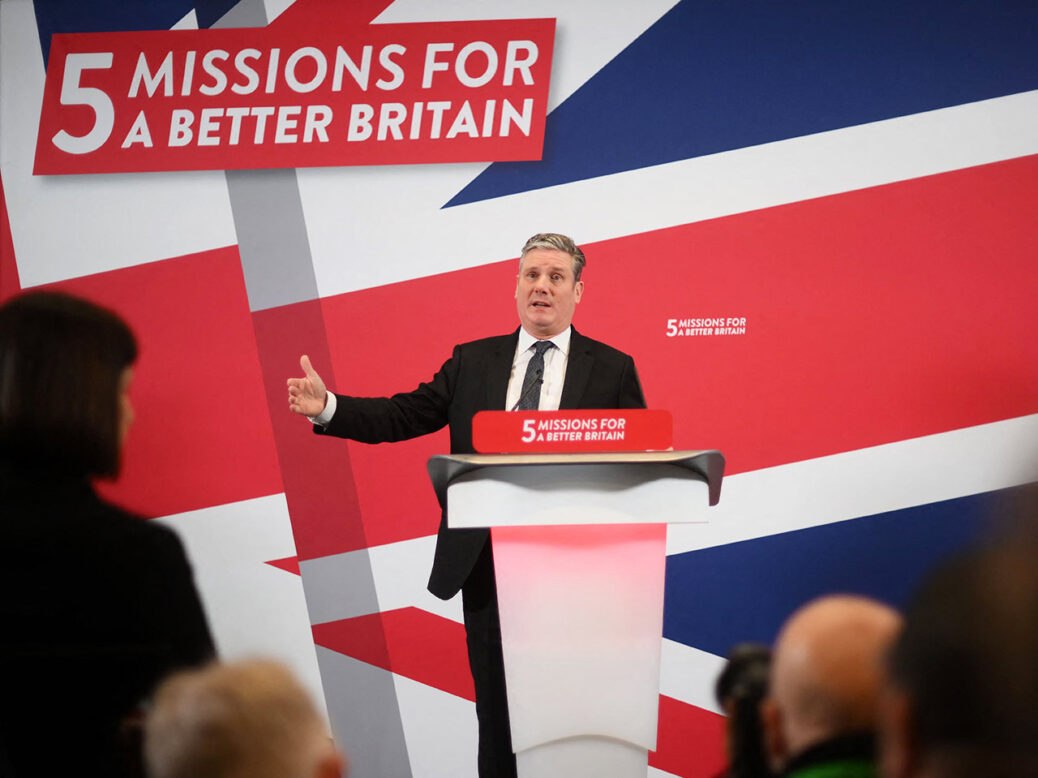
In recent days we learnt a little more from Keir Starmer about what the next Labour government could look like. His five new missions for the country are hardly controversial: higher prosperity, clean energy, good health, personal safety and childhood opportunity. But in the details of the plan Starmer showed how he backs the timeless Labour values of equality, collective action and universalism.
The egalitarianism was there in his goals of reduced health inequalities, opportunity for every child, keeping women safe from violence and ensuring no part of the country is left behind. The means to achieve the missions are intervention, partnership and the power of government. Philosophically, it could not be more different from the stand-back instincts of Rishi Sunak or Liz Truss.
But the most interesting development is the powerful current of universalism running through Starmer’s goals. He wants gaps to be closed by providing decent support and opportunity to all, not by targeting policies only at those with least. This makes perfect sense after a decade and a half of stagnation, when life has got harder for most people, not just an unlucky few.
We are seeing this universalist instinct put into practice in places where Labour is already in power. Indeed, it lies behind Sadiq Khan’s announcement last week of free lunches for every primary school child in London. This policy is right not just because too many deprived children fall through the cracks of today’s stringent means-testing, but because middle-income families badly need help too. A universalist offer, open to all, breaks down stigma and expands the state’s role in meeting our common needs.
[See also: Keir Starmer: This is what I believe]
Labour’s emerging early years and childcare proposals will build on such local initiatives. The party wants to make an offer of excellent and affordable support to children from every background. Policies are being designed that both ease financial pressures for dual income couples and tackle childhood deprivation and disadvantage.
The sad truth is that Labour needs to defend universalism, not just advance it. Healthcare reform is a top priority because Labour politicians sense that the NHS is on the brink of being abandoned by those who can afford to pay. They fear a downward spiral, because when core public services are not shared by all they deliver worse results – and their importance to political debate declines.
My think tank, the Fabian Society, is advising Labour on how to take social care in England in the opposite direction. We want to replace a service that is narrowly targeted, fragmented and starved of cash with a new set of national entitlements for everyone who needs help to live independently.
Today we have a two-tier system where half arrange and pay for care themselves with no assistance, while the other half fight to access a state offer that is totally inadequate. A new social care guarantee regardless of means would be transformative.
Ideas like free school meals and childcare for all, or a national care guarantee, are rooted in the left’s historical commitment to universalism. Similar measures are now likely to underpin all Starmer’s new missions. The announcements in recent days may not yet be specific promises, but the values underpinning Labour’s plans are becoming clearer and, where the party is in power, they are being turned into reality.
Read more:
Michael Gove’s speech could have been delivered by Keir Starmer
Keir Starmer is living in Liz Truss’s world
Keir Starmer interview: “Am I aiming to be just a one-term prime minister? No, of course not”






